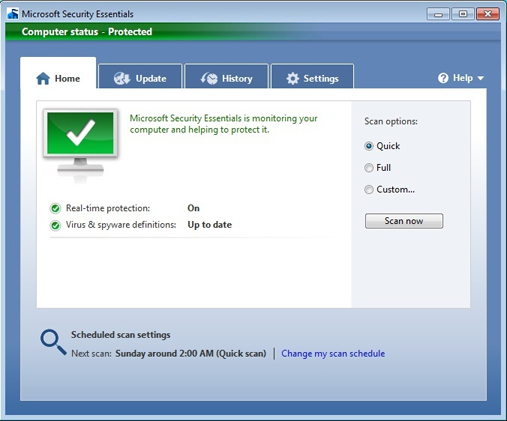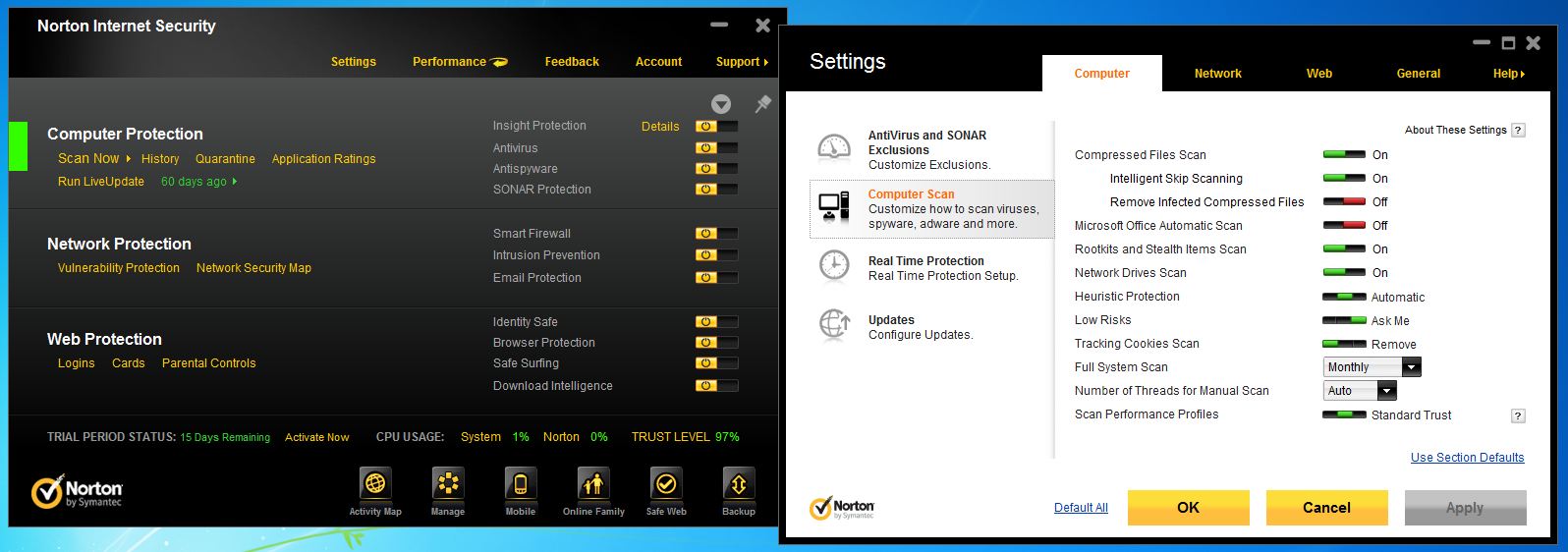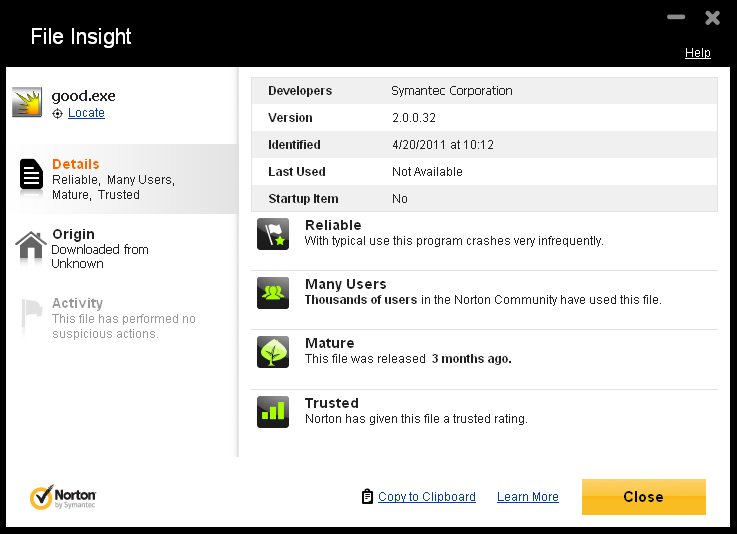Do Antivirus Suites Impact Your PC's Performance?
Most of us are now fairly confident that our antivirus scanners are doing their main job of protecting our systems from malicious pests. But what are those scanners doing to system performance behind the scenes? Are some scanners better than others?
Contenders: Microsoft And Symantec
As the closest thing to a free "de facto" AV product on the market, Microsoft’s Security Essentials is sort of a must-have in a round-up of this sort, if only to use as a possible baseline for judging against other products. As you can see in the earlier AV-C charts, Security Essentials isn’t known for being best-of-breed, but it also doesn’t have to be. As a fairly stripped down, antivirus-only tool, it just has to be good enough. Which it is. You don’t see forums filled with people lamenting how viruses killed their systems because Security Essentials is useless. You see lots of complaints from people who didn’t install any AV product.
Microsoft installs quickly and updates with no hassle. As usual, we accepted all of the program’s default settings, save for disabling the scanning schedule. Security Essentials also prompted us to enable Windows Firewall if we didn’t have any third-party apps serving in its place, so we did this, as well. You don’t get much ability to configure or customize here, but that shouldn’t bother most mainstream users.
Symantec’s Norton Internet Security ($70; http://us.norton.com/internet-security/) descends from what may be the oldest, most successful, and most criticized AV product in the market. Norton has always strived to be the most feature-rich AV title available, and there was a long stretch of time in which that also meant being the most demanding on system resources. In this sense, the cure was often worse than the disease, and a Norton AV scan could often bring a single-core system to its knees. Of course, this led the market to value features like off-hours scheduling, deferred scanning during non-idle times, and making low CPU impact a top priority. The company is so phobic about this now that the phrase “Stop online dangers without sacrificing performance” is its top marketing bullet.
As the next image shows, Symantec makes heavy use of reputation analysis (branded as Download Insight 2.0) in its AV. You also get identity protection, antispyware, antispam, firewall, and phishing protection, all wrapped up in a slick UI that puts a fairly simple front end on a ton of options settings. The $70 price is for up to three systems for one year. A two-year license runs $115, and three years notches to $165. If you don’t mind giving up parental controls, malicious Web site blocking, some identity protection features, and Symantec’s password wallet, you could slide back to Norton AntiVirus 2012 ($40 for one year/one PC, $70 for three years/three PCs).
Get Tom's Hardware's best news and in-depth reviews, straight to your inbox.
Current page: Contenders: Microsoft And Symantec
Prev Page Contenders: Kaspersky And McAfee Next Page How We Tested: Configuration-
dogman_1234 Regardless what anyone says: Using McAfee is like using a Glad garbage bag as a condom.Reply -
Martell77 I've been using Trend Micros AV since y2k and haven't had a reason to switch. Because of the systems my clients have I never recommend Norton or McAfee and if they have it I always recemmend they switch. Its truely amazing how the performance of their systems increases after getting rid of those AVs, especially Norton.Reply -
soccerdocks On the scanning time page there is an error in the second graph. It also says first run.Reply
Also, the timing of this article was excellent. I had just been doing some research about what anti-virus software I should switch to, mainly based on performance, but I guess I just got all the information I needed. -
compton Some of the results seem mysterious, like all the times the no-AV configuration scored lower in many tests than it should be faster in. Is it possible that using the Wildfire as the system drive instead of the platter would have eliminated this behavior? In general, I hope there is a second part to this that does include SSD runs. I would think any advantage AV products have vs. the no-AV config would evaporate.Reply
I stopped using AV products on my personal systems back in 2003. Norton back then was god-awful on a Pentium 4 systems, seemingly crushing the life out of a system. Even with a first generation WD Raptor 36GB my P4 2.6 would choke not only with Norton, but also McAfee. I might not use AV software, but I do put it on my family members' systems when it doesn't kill performance. In that respect these modern solutions seem much better.
-
ChiefTexas_82 On my Pentium D I have to run McAfee when I'm gone for a good while or sleeping as my computer slows to a crawl during the scan. Even bringing up the menus to stop the scan take way too long.Reply -
darkstar845 Why didn't they test this on a computer with average specs? The 8gb ram and very fast CPU might be offsetting the impact that the AVs put on the computer.Reply -
bit_user Thanks for this. I remember the bad old days when AV could make software builds take several times longer.Reply
-
cdhollan While my comment is completely tangential, but my inner chemical engineer can't resist making a small correction in what is otherwise a great article:Reply
>>Apparently, this is somewhat like saying you can boil water at 230 degrees Fahrenheit instead of 260 degrees. As long as the water is at 212 degrees or higher, no one really cares. -
rottingsheep installing vipre speeds up your computer?Reply
i think something is wrong with your numbers. -
Amazed ESET is not being tested considering it sells itself on its performance over the competition while maintaining the same levels of protection.....Reply


